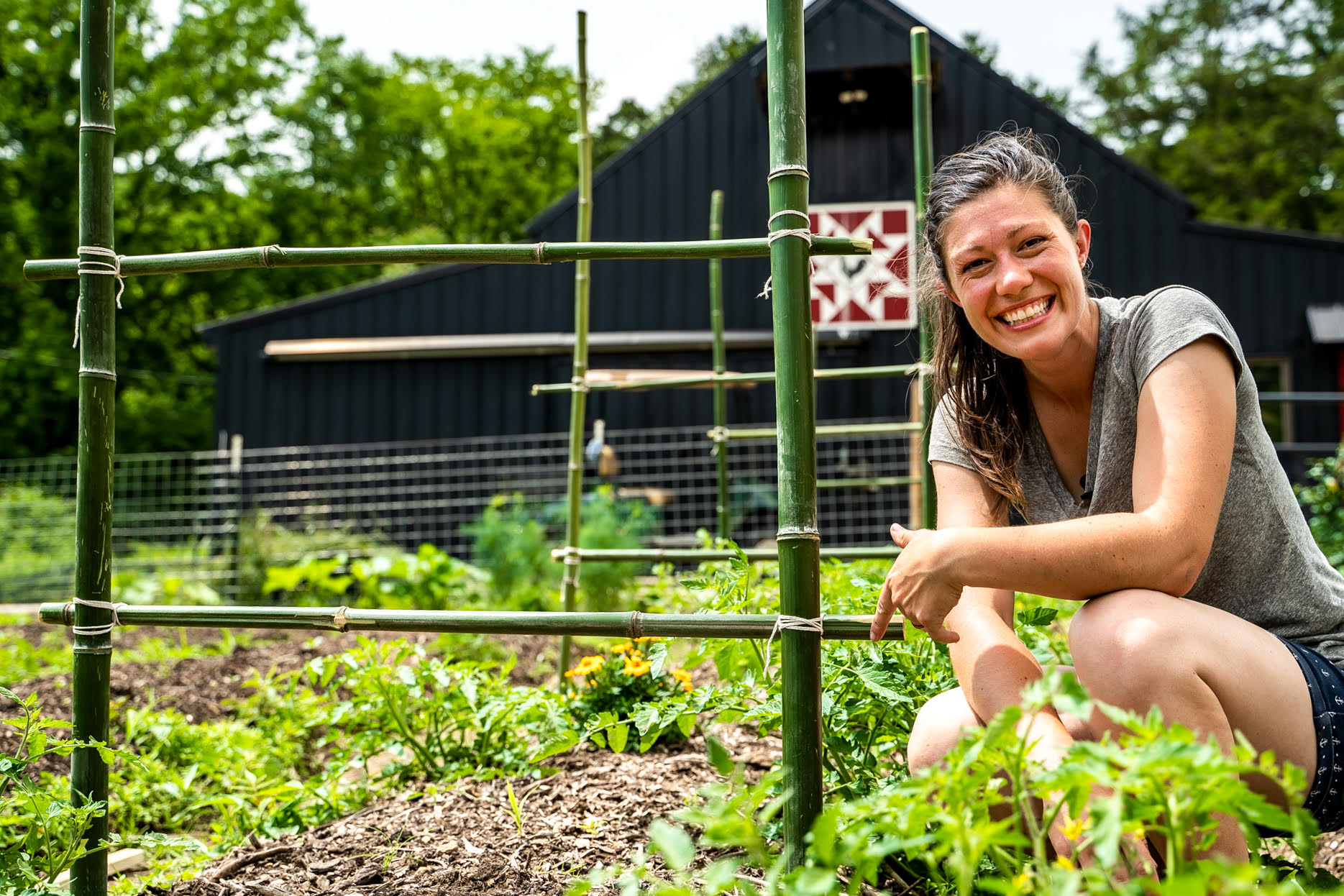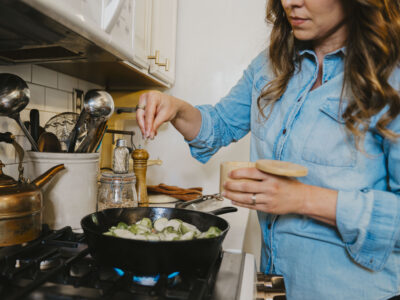Learn practical time-management tips on becoming a homesteader and how to get everything done in a day without wasting time or getting distracted with Anne Briggs of Anne of All Trades. She also shares her homesteading journey from Taiwan to Seattle, settling in Nashville, TN, to now being a new mom.
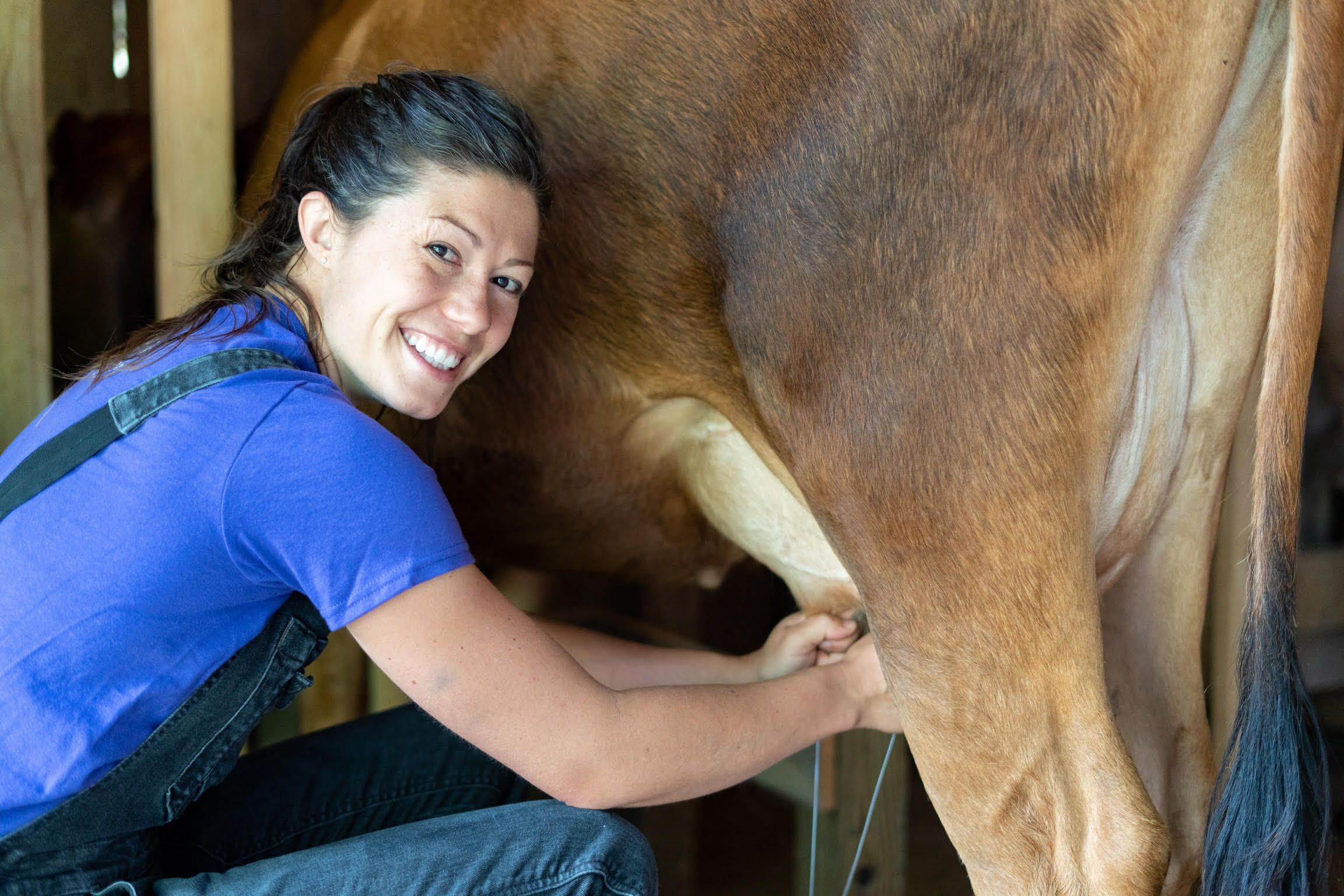
In today’s Pioneering Today Podcast (episode #290), Anne of All Trades is sharing about her adventures in blacksmithing, raising baby goats, gardening, and canning and preserving. Amidst boatloads of helpful practical advice, she shares how the phrase, “don’t compare your beginning to someone else’s middle,” has helped her on her journey.
Table of Contents[Hide][Show]
About Anne
Anne, known as Anne of All Trades, is a farmer, builder, and educator intent on preserving disappearing life skills. Ten years ago, with very little prior knowledge of homesteading or building things, she set out on a journey to become more involved in every aspect of her life, to leave the tech industry, to move out of the city, and to encourage others to join her in the pursuit of something better.
Now she and her husband, Adam, live on acreage in Nashville, TN, where she’s raising her son and selling dairy, beef, and eggs, all while building heirloom-quality furniture.
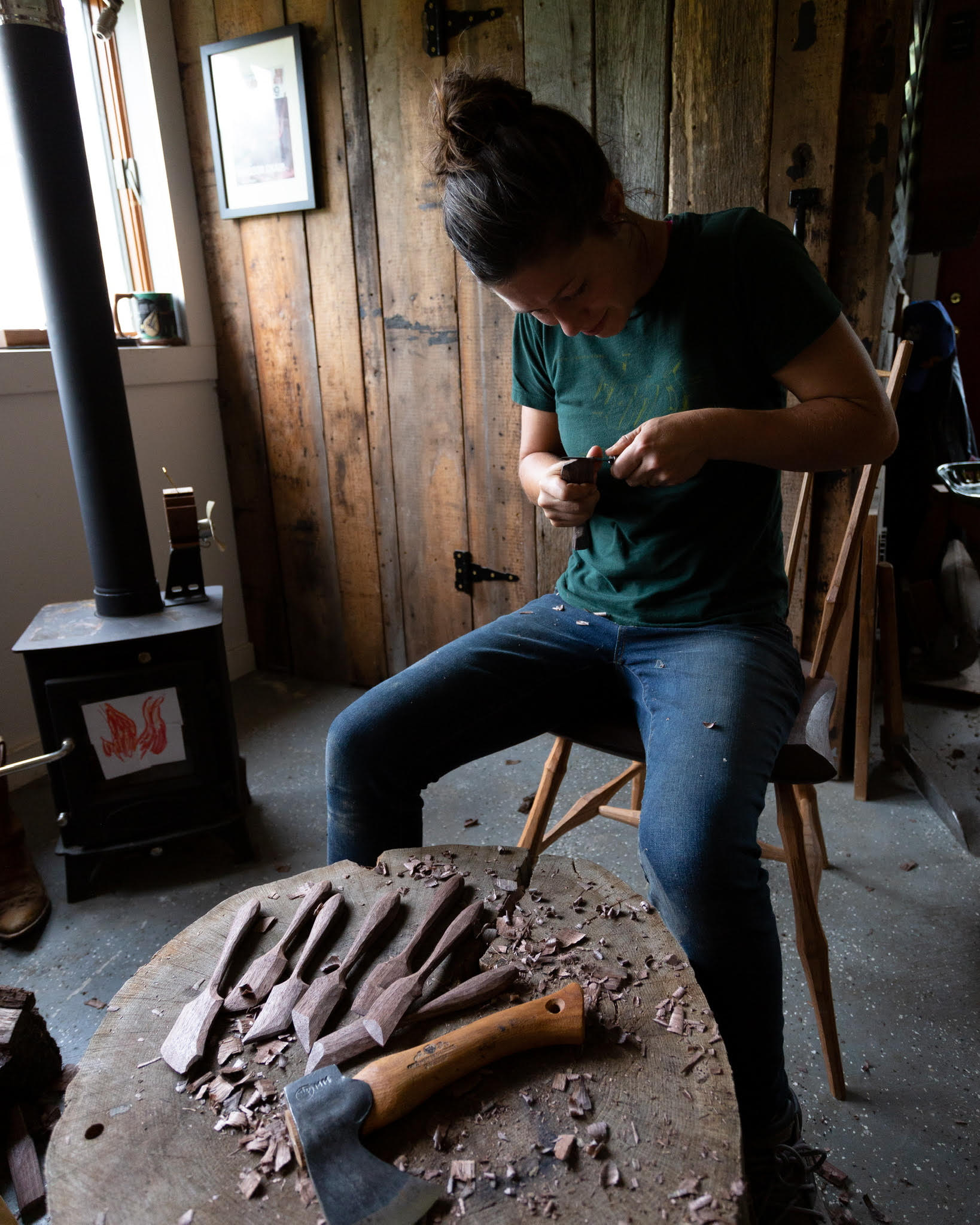
When we’re not in the middle of a pandemic, Anne travels the country teaching about all kinds of things from regenerative farming to woodworking to building small businesses to growing a social media following. She’s currently building a school on their farm in TN where she’ll do more of the same both in-person and online.
In this episode:
- How Anne has learned new trade skills over the past 10 years by not only teaching herself but seeking out others to help her learn.
- What it’s like living in the age of the internet where everything looks picture perfect.
- How the phrase, “Don’t compare your beginning to someone else’s middle.” has helped Anne’s journey.
- How to take little steps to accomplish the big thing you want to do.
- Why you should NEVER start your homestead with goats (and a few VERY funny stories from both Anne and Melissa).
- Anne answers the question, “What methods have you found to be most helpful in managing your time so you can do the things you want to do on the homestead while also working full time?”
- How to save minutes of time each day to add up to hours of extra time each year.
- How the “Pomodoros Technique” can help you save hours of time on the homestead.
- Anne shares tips for keeping the distraction of her phone at bay, plus practical tools for getting tasks done on time.
Resources:
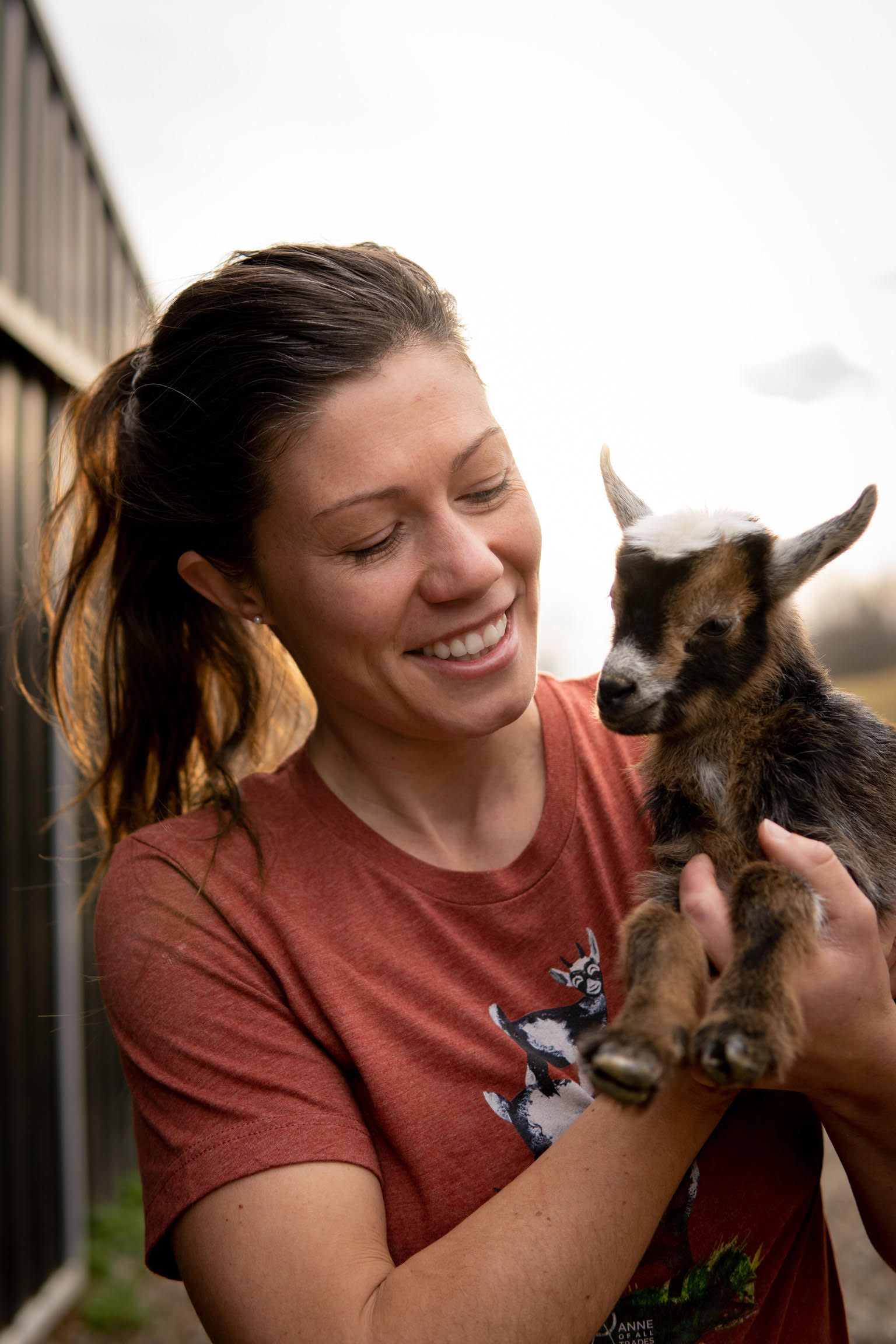
To connect with Anne you can visit her at the following places:
- On her website, Anne of All Trades
- On her other website, The School of All Trades
- On YouTube
- On Instagram
- On Facebook
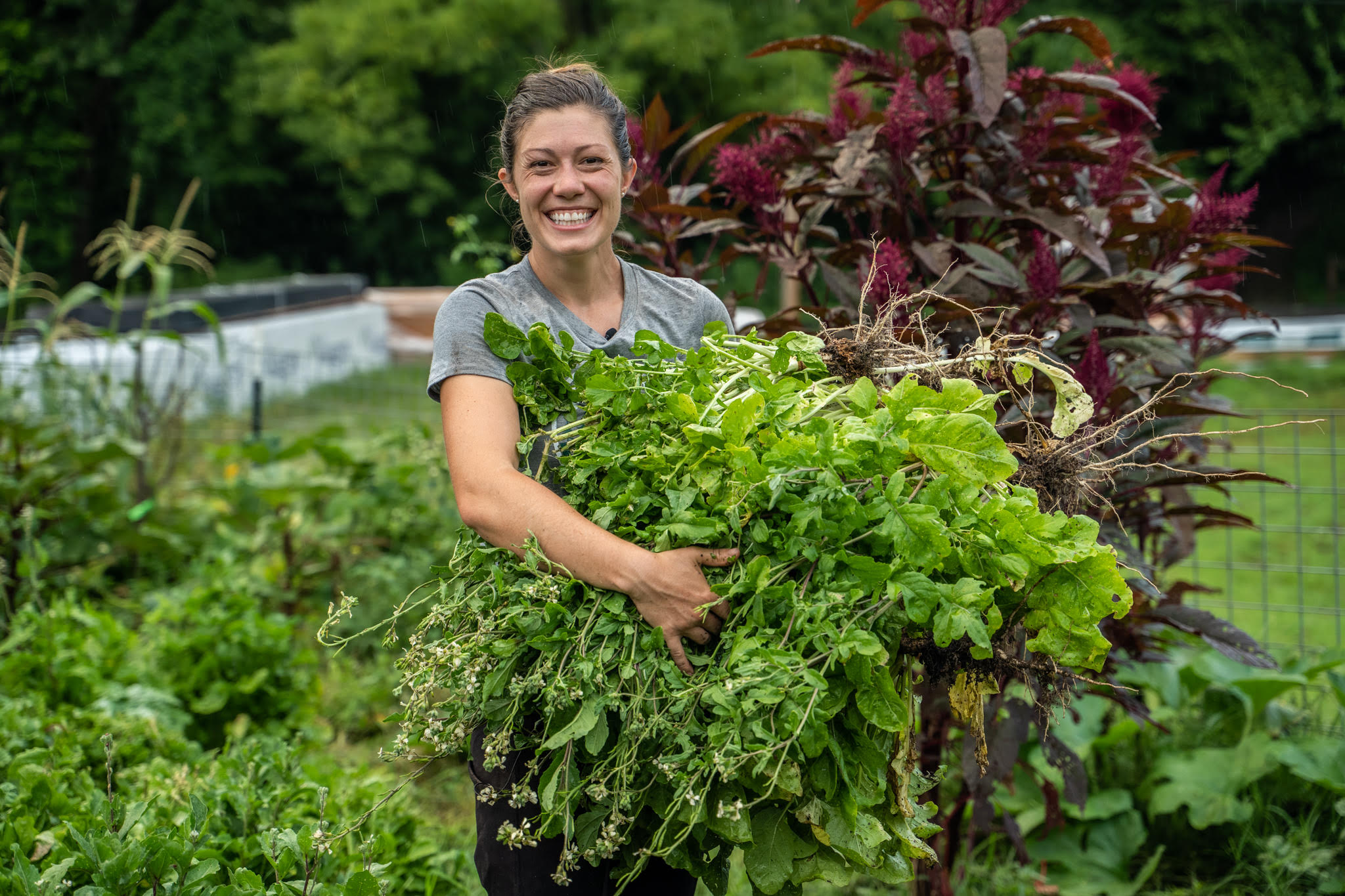
Check out more interviews and related posts.
- Aquaponic Gardening & Raising Tilapia with VW Family Farms
- Tips for Homesteading Off-Grid & Life w/out a Fridge or Running Water
- Creating a Homestead Business That Makes Money
- Urban Homesteading – Tips for Small Space Self-Sufficiency
- How to Cook on a Wood Stove
- How Homesteading Helped Lyme Disease Recovery
- Biggest Homestead Mistakes We Made & What to Avoid
- What to do When Homesteading Gets Tough
- Planning our “Farm Stay” Homestead
- How to Buy a Homestead – What to Look For
- Maximizing Your Homestead for Profit & Production (with Joel Salatin)
- Eating a Year of Hand Harvested Food with Alexia
- The Homestead Documentary Project
- Homesteading With Children
